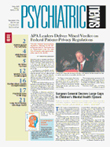The National Institute on Drug Abuse (NIDA) hopes to begin clinical trials early next year on a vaccine that prevents nicotine from reaching the brains of animals. The new vaccine could prove useful as an inoculation against nicotine addiction.
The new vaccine, NicVAX, manufactured by the Florida-based pharmaceutical company Nabi, was developed with NIDA grant support. The compound is being tested to determine whether it is toxic in animals, and if it is not, clinical trials will be undertaken to evaluate its safety and efficacy in humans.
The four-year grant project will begin this fall with clinical trials being planned for early 2002. Primary investigators include Ali Fattom, M.D., Ph.D., of Nabi; Paul Pentel, M.D., of the Minneapolis Research Foundation and the Hennepin County Research Center in Minneapolis; and David Malin, M.D., of the University of Houston at Clear Lake.
Pentel and Malin were responsible for early research using the vaccine in rats. The researchers found that the vaccine was able to stimulate antibody production in the rats, which reduced by 65 percent the amount of nicotine that reached the rats’ brains. The nicotine-specific antibodies produced in rats by NicVAX also significantly reduced the effects of the nicotine on both blood pressure and heart rate.
“Some form of vaccination against nicotine would be highly useful because vaccinated individuals would not be able to get a ‘kick’ from the nicotine in tobacco smoke or chewing tobacco,” said Alan I. Leshner, Ph.D., NIDA director. “If people found tobacco less rewarding, they would be less likely to continue using it.”
NicVAX is proposed as a therapy that could enhance current treatments for nicotine addiction by helping smokers who are trying to kick the habit resist the urge to light up. The hypothesis, said Leshner, is that the vaccine may inhibit nicotine’s “priming effect”—the phenomenon in which a formerly addicted individual experiences an increased desire to use a drug after a single exposure, which contributes significantly to relapse. A treatment program involving NicVAX might also include elements of cognitive-behavioral therapy and medication, such as bupropion, to help reduce withdrawal symptoms.
However, the vaccine may have implications beyond simple nicotine addiction. Smoking is known to increase the use of other addictive substances, such as heroin and cocaine. Blocking the urge to smoke in those addicted to other substances, said Leshner, could prove to be a valuable tool in combating addictions to other drugs.
It is too early, Leshner added, to say whether the process of blocking the “kick” from nicotine could lead to vaccinations aimed at blocking the brain effects of other addictive substances. That line of research, however, will certainly be pursued, he said, if clinical trials with NicVAX prove promising in humans.
More information on NIDA’s research efforts with nicotine can be accessed at the institute’s Web site at www.nida.nih.gov by clicking on “NIDA Notes” and viewing volume 15, number 5. ▪
